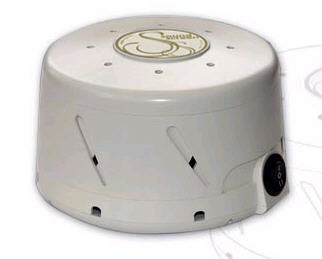No products in the cart.
Make Your Bedroom Quieter

07
May
There are an infinite number of noises that keep us up at night, or distracted during the day. I live directly next to an interstate, but have friends in larger cities and others with noisy neighbors. Regardless of the cause, there are only a limited number of ways to make your bedroom, or other rooms in your house quieter.
Unlike light, sound travels as a longitudinal wave with relatively low frequencies, allowing it to penetrate weak barriers or bend around openings. You can combat this any number of ways, with corresponding benefits and costs.
Top Ways to Make Your Bedroom Quieter
The first thing you must do is isolate the source of the sound that is most troubling. This may be easy to do, such as a highway, construction site, airport, or neighborhood dogs. However, don’t forget that the source could be internal to the home as well, such as noisy roommates, your spouse sleeping at different hours, or loud TV sets. Determine which noises are the ones you most need to drown out or block, and make sure you understand how they’re getting into your home. Remember that the vast majority of the noise getting into your bedroom or office is coming through (and around) doors and windows. That is because the material there is less dense, thinner, and also has openings to allow movement. These are the areas you should first treat.
The solution options range from cheap and easy to longer term projects that may require a budget and outside help, not to mention some expertise. So don’t forget to do your homework. We’ll start with the easiest options first:
Masking Unwanted Bedroom Noise

Use sound masking to cover unwanted noise in your bedroom.
1. Drown out the noise with earplugs and/or a white noise. This costs only a few dollars from the corner store, and you can program your iPod to play at certain times, and on certain channels, which may soothe your sleeping patterns. Either music or background sounds (like breeze rustling leaves) may help you more. You can have this up and running within a day, and it may provide some immediate comfort. However, there are some shortfalls: sleeping with earplugs may cause build up of ear wax or impaction, and bacteria thrive in those soft, warm environments. Meanwhile, white noise only masks the issue – this is equivalent to a doctor treating the symptoms but not the root cause of the illness. While it may provide short-term benefits, this is not the best case scenario.
Soundproof Curtains
2. Acoustic Curtains: This is a relatively new product class on the market, and solves many of the basic issues encountered by city-dwellers or standard noise sources. A sound-blocking and sound-absorbing curtain is hung over your window or door to vastly reduce the amount of sound transmitted through the opening. The curtain creates a strong seal against the wall or jamb, to account for the industry’s 1% rule: If there is a 1% opening in the material, it lets through about 50% of the sound. Therefore, a firm seal is pivotal. Some firms, including Residential Acoustics’ AcousticCurtain™ and AcoustiDoor™, are designed for aesthetics as well, so they will blend with your interior decor. You can order these online, or through retail partners. Unlike previous products in this category, some curtains can retract up and down now as well, allowing light (and sound and heat) to pass through at some times, but creating a black-out system when desired.
Sound-Blocking Window Treatments
3a. Vinyl Panels: You can place see-through vinyl panels on your windows, which increases the amount of material the sound must pass through. However, this method ignores the cracks, which often contribute the most noise. Only use this method if you’re certain there are no cracks in around your window, and it slides to an air-tight seal.
3b. Sound Absorbing Baffles: These products depend on a different scientific principle. Namely, sound absorption benefits from a light, porous material that traps sound waves internally, while sound blocking depends on dense, thick material to block the sound from passing through. This is why hanging a regular blanket, or even a really thick comforter, over the window will block about 0% of the sound. It will keep the sound from echoing (bouncing) around the room on hard surfaces, but won’t prevent it from entering. Some Sound-blocking Curtains have an absorption layer on top of their sound-blocking layer to account for this as well.
Upgrading Drafty Windows in the Bedroom
4. Double-Pane Windows, Minor Construction (Door Jambs): This route may be beneficial for home-owners, since you are also increasing the value of the home. Don’t be surprised if it runs you close to $2000, since there are time and material costs. For renters, the ends rarely justify the means, since you will need to wait for the installation (a day to a couple of weeks), and you cannot realize any of the cost when you move out. Similar to the double-pane windows, you can install a door kit around your door to block the large gaps that allow the TV noise to seep through. This also usually takes an experienced professional, and runs in the $600 range. Also, the kit may not be too visually pleasing. The benefit is that it will block slightly more sound than the above methods, and it is permanent, if you want to stay in the apartment/house indefinitely.
Hire an Acoustic Consultant to Determine Bedroom Soundproofing Options
5. Acoustic Consultant: This is the highest end solution, and will require talking to an expert in the field. Often times it is not necessary since these experts are primarily used to “tune” rooms for acoustic performance, including studios, gyms, and other civil structures. Some companies, including Residential Acoustics and Acoustical Solutions, offer free over-the-phone consultations and can send an expert out as the circumstance requires. If you want to improve your room to completely sound-proof, the modification costs will probably dwarf that of the consultation. I would recommend going this route only if you are certain you need the performance.
In A Nutshell – Soundproofing Your Bedroom
At the end of the day, quiet time in your bedroom is critical on so many fronts – for rest and relaxation, and just an oasis to get away from annoying and distracting noise. If excessive noise is disrupting sleep patterns, it may be an issue for your short-term health, or even lead to long-term health effects. You can mask unwanted sounds with white noise, use soundproofing curtains to block outside noise, or bring in an expert to diagnose a custom solution.
Follow these tips to make your bedroom quieter. If you have any other questions, please send us a message or let us know what you think!
